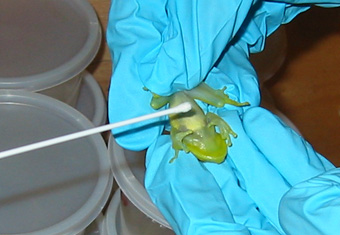

Abstract
Human introduction of novel infectious agents to new geographic areas is one of the leading causes of emerging infectious diseases among wildlife. One area where this is frighteningly understudied is the global trade in wildlife. This is a serious concern as the global scope of the wildlife trade and the rate at which animals are transported between widely disparate regions can dramatically facilitate cross-species transmission of the infectious agents that animals naturally host. Because populations afflicted with novel infectious agents have been deprived the benefits of host-pathogen co-evolution this can seriously threaten native wildlife. I propose a research agenda that utilizes synthetic, theoretical and field based techniques to forecast the emergence of infectious diseases resulting from the global trade in wildlife. I will catalog the infectious agents associated with species imported to the U.S. and use these data to quantify the gain and loss of infectious agents as species are transported from their native range, through the global wildlife trade, to their exotic range. I will test the generality of these results by conducting in depth studies of select species imported through U.S. ports of entry. Finally, I will assess the risk that infectious agents common to imported wildlife pose to Red Listed species native to the U.S. Results from this research will be used to make science-based recommendations for policy that can help to prioritize disease surveillance programs associated with the wildlife trade. While this study will be specific to species imported to the U.S., results will be informative to all nations involved in the global trade in wildlife.
